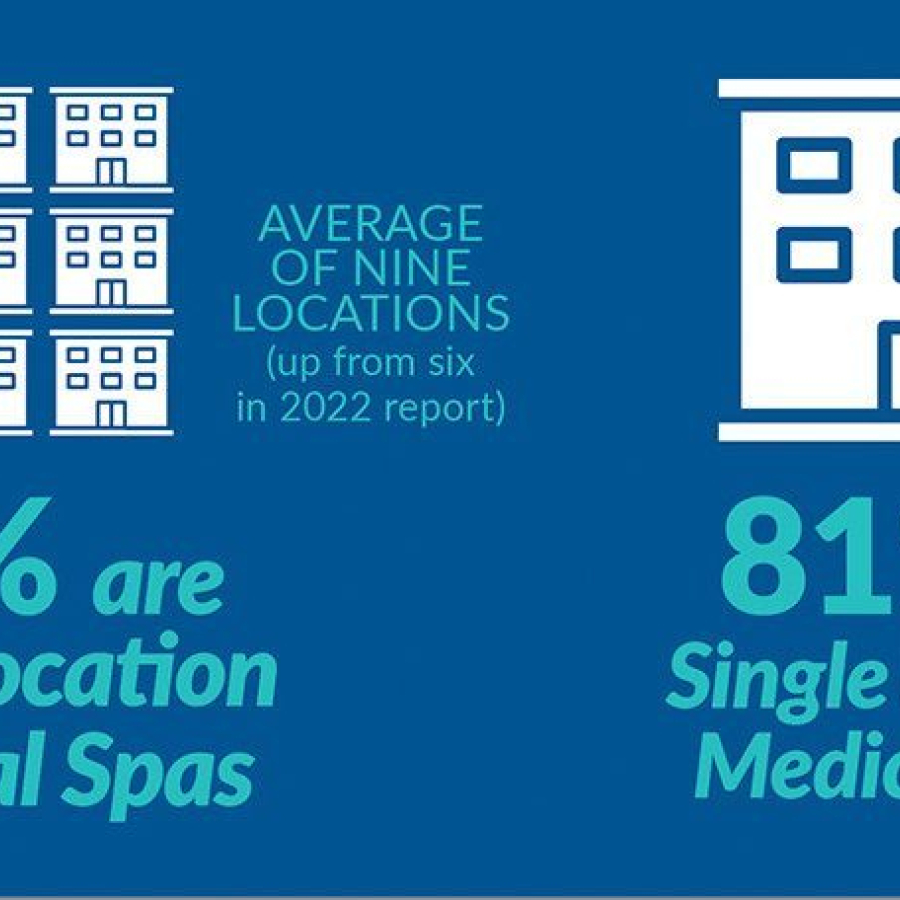
Legal
HB 3749, Greg Abbott, and... John Oliver?
HBO's Last Week Tonight with John Oliver discussed public concerns about how med spas operate.By Alex Thiersch, CEO, AmSpaJohn Oliver ...
Posted By Mike Meyer, Wednesday, December 2, 2020

This year has been a challenge, to put it lightly.
The coronavirus pandemic caught us all by surprise and forced employers across the country to temporarily close, and then to find new ways of doing business.
Then there were the legislative changes. The Families First Coronavirus Response Act (FFCRA) came first, and, for a moment, it wasn't clear how business owners were going to meet the demands of emergency leave payments while also making ends meet for their businesses.
Next came the Coronavirus Aid, Relief and Economic Security (CARES) Act and Paycheck Protection Program loans, which offered some financial relief for struggling business owners, as well as expanded unemployment benefits for displaced workers.
Gradually, things started looking like they might settle down, and most business owners managed to find ways to keep their doors open, though some were not so fortunate.
And then came the political unrest.
Things became politically tense in the months and weeks leading up to the 2020 U.S. presidential election, and that tension naturally crept into a number of workplaces across the nation. That divisiveness persists today, even after the preliminary results of that election were announced.
But, beyond just keeping things from boiling over between employees on opposing sides of the political aisle, the election is likely to have other impacts on your business, as well.
The outcome of a presidential election can result in sweeping changes to the types of employment laws that are passed and the way that certain laws are interpreted, as well as how—and even if—certain laws are enforced at the federal level.
It is likely that the incoming administration will have new ideas about things like the coronavirus relief it is willing to provide, the way that the National Labor Relations Act is interpreted and enforced, and the sort of new legislation it will try to pass regarding things like the federal minimum wage and paid family leave.
For this reason, it's a good idea to prepare yourself with a bit of background about what the policies of the incoming Biden administration could mean for your medical spa—otherwise, you risk being constantly caught by surprise whenever changes are enacted.
For more on what employment-related policies we might expect to see from the incoming administration, you'll find a more in-depth analysis on the CEDR blog.
Regardless of the employment legislation we see enacted in the coming years, the events of 2020 themselves are likely to have a lasting impact on the American workforce.
Unemployment reached record highs this year, and, as more and more small businesses started to close, a great many workers and business owners were stuck waiting for additional relief from a second round of stimulus, which never came.
And, with many parents unable to work due to a lack of available childcare options, employers found themselves short-staffed, despite the high numbers of workers that were still unemployed or underemployed.
The result of all this instability was a dramatic reshuffling of the workforce. Because of this, employees are likely going to be on the lookout for any additional job security or personal protection they can get from their next position.
This will likely mean that workers will put a premium on the availability of things like paid time off (PTO) and health benefits when applying for jobs or choosing between offers from multiple employers.
If you want your business to remain competitive in the 2021 job market, now is the time to think about ways to provide PTO and health benefit options to your team.
If not for the coronavirus and the presidential election, this year's big story from an employment law standpoint would have been related to the rollout of mandatory paid time off at the state level.
Thirteen states, plus the District of Columbia, already require employers to provide some sort of time-off benefit to their employees, and five states have passed laws related to mandatory leave benefits that take effect on January 1, 2021.
We provide a brief breakdown of each of those new laws on the CEDR blog, or you can use the links below to jump to information about the legislation in each specific state:
Along with making sure they are implementing the basic PTO provisions of these laws, business owners and managers in these states will also need to ensure that their company policies are still compliant when the new laws take effect. If your medical spa is in one of the states listed above, it's important that you work with an HR or employment law expert to bring your handbook into compliance with the new guidelines.
You will also want to make sure that the timekeeping system you use for your business automatically tracks PTO for your employees as it accrues, while also making it easy to administer and track leave for your employees when the time comes.
Even if you are not in one of the states that already requires employers to provide some form of paid time off, or any of the five states rolling out new time-off laws in January, you should know that we expect this legislative trend to continue for the foreseeable future. There has even been chatter about time-off laws potentially being passed at the federal level. This suggests that it's likely just a matter of time before your business is subject to a similar law.
You can get ahead of the curve (and other medical spas in your area), however, by making sure your system is set up to handle PTO before legislative changes force you to scramble to do so.
This year has been a year of change for employers in the U.S., and that change has unfortunately put business owners, managers and employees under a great deal of pressure.
The coronavirus pandemic has affected all of us in too many ways to count, and, unfortunately for employers, all indications are that the changes wrought by the global health crisis are going to carry over into 2021 in one form or another.
When you then factor in the unpredictable nature of a presidential transition, the shifting priorities of an unstable workforce and the increasing prevalence of mandated time-off benefits in states across the nation, one theme becomes clear: It has never been more challenging or more important for employers to stay organized, informed and on top of HR trends and ever-changing employment laws than it is right now.
When you're ready to work with an HR expert to bring your business into compliance and/or gain an edge for the new year, AmSpa Members can rest assured that CEDR will be available to help.
To join in the conversation with HR experts and nearly 9,000 other business owners and managers like you, you can join CEDR’s private, professional Facebook Group, HR Base Camp.
CEDR HR Solutions believes that better workplaces make better lives. CEDR provides custom, legally compliant employee handbooks, expert human resources support and powerful team management software to owners of more than 2,000 dental, medical and wellness businesses across all 50 states. Its expert advisors work directly with business owners to find workable, compliant solutions to HR and team management issues. Because when you improve your workplace, you improve your life.
Related Tags
Medical spa news, blogs and updates sent directly to your inbox.

Legal
HBO's Last Week Tonight with John Oliver discussed public concerns about how med spas operate.By Alex Thiersch, CEO, AmSpaJohn Oliver ...

Trends
By Patrick O'Brien, JD, general counsel, and Kirstie Jackson, director of education, American Med Spa AssociationWhat is happening with glucagon-like ...

Trends
By Michael Meyer Approximately every two years, the American Med Spa Association (AmSpa) releases its Medical Spa State of ...

Trends
By Michael Meyer Since the beginning of 2024, it seems like medical aesthetics has taken one hit after another ...